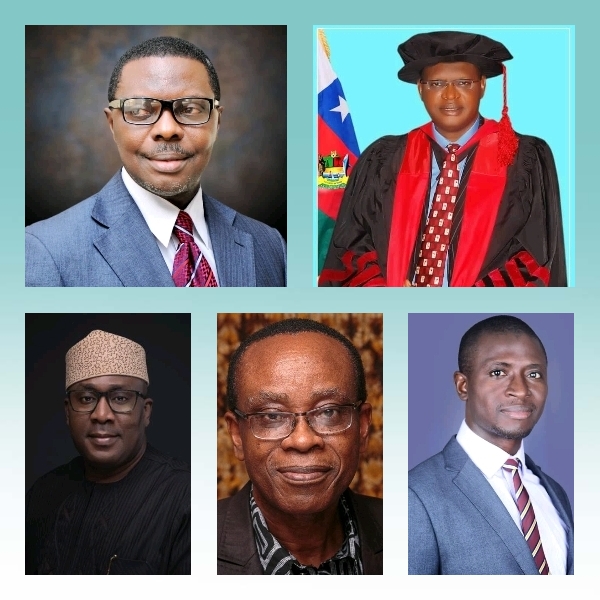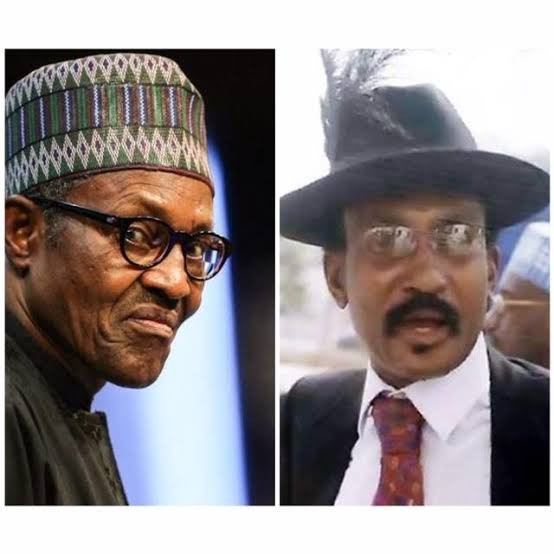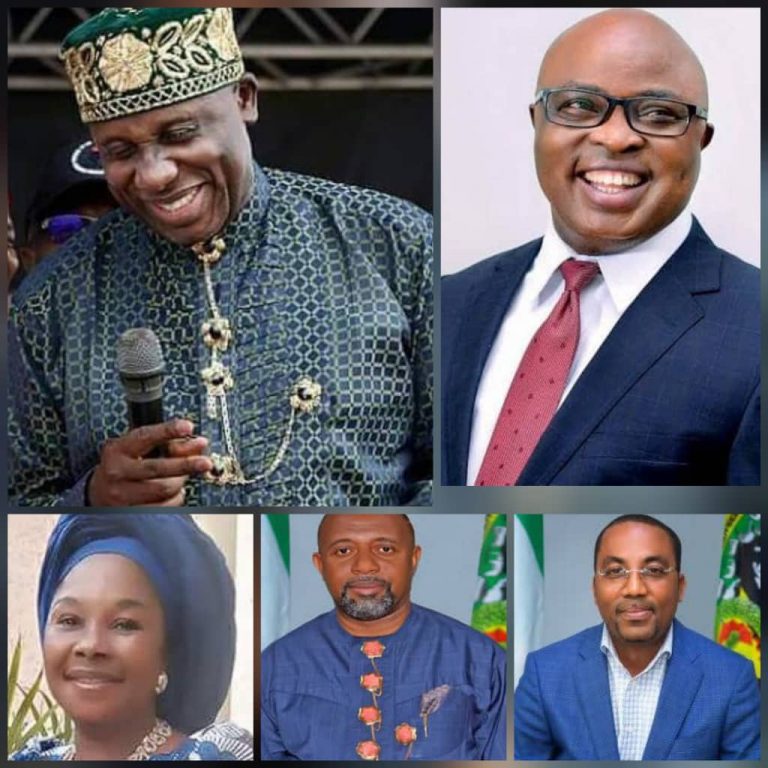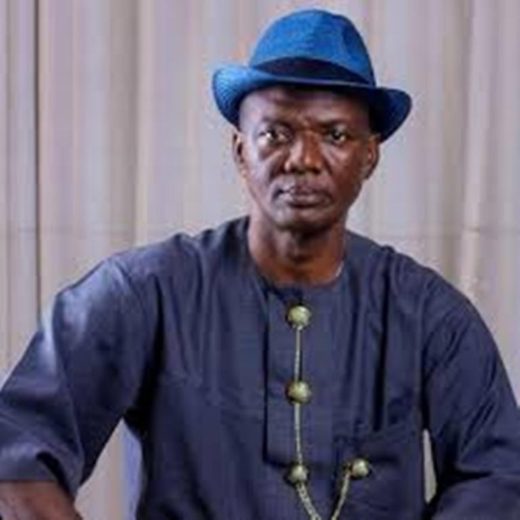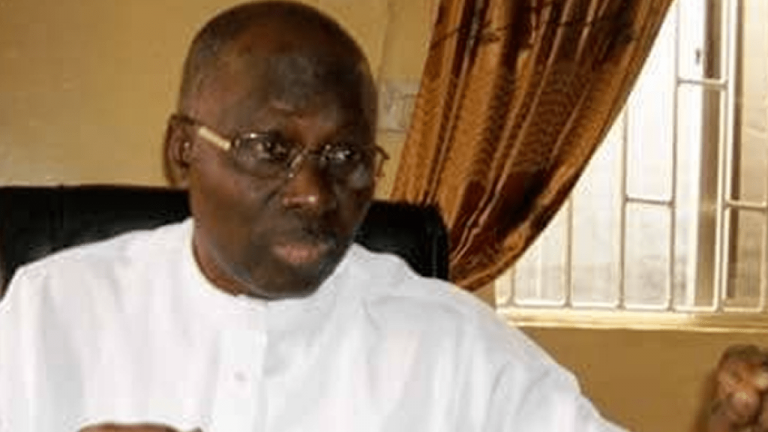By Godknows Igali, PHD
The progressive march of human civilization, especially in science and technology in the last two centuries had seemed to make the world in which we live fairly foreseeable and predictable in almost all spheres. As a matter of fact, humanity, at certain times, had been tempted to crow, quite deafeningly about already living in the future. How untrue. “The world is so unpredictable. Things happen suddenly, unexpectedly. We want to feel we are in control of our own existence. In some ways we are, in some ways we are not. We are ruled by the forces of chance and coincidence”, once lamented by American writer, Paul Auster.
Officially called Severe Acute Respiratory Syndrome Coronavirus 2 (SARS COV2), but commonly known as Coronavirus and its associated disease, Covid-19, came in November, 2019, suddenly, surprisingly and swiftly encircling the entire world into a mass lockdown mood. According to United National Secretary General, Antonio Guteres, “COVID-19 is the greatest test that we have faced together since the formation of the United Nations (in 1945)”. Piteously therefore, humankind, despite its seeming sophistication and exaggerated strength is eight months later still uncertain about the origins of this adversary, how to fully exit from its hold or what comes next to it. The fragility and collective feebleness of human civilization at its apogee at this beginning of the 21st century has become unadornedly exposed. The mocking paradox being that the enemy which the world with all its political, scientific and spiritual arsenals is confronted with is ultra-tiny, microscopic.
As world leaders, their chief policy makers and top scientific advisers, still try to grapple with the situation, which the World Health Organization (WHO) has characterized a Pandemic, so has been the penstock of prognosis and forecasts about what the world and human society would be “the day after”.
SO, WHAT HAS HAPPNED SO FAR WITH COVID-19
With the outbreak of COVID-19, the entire world had been put into a panic of unprecedented dimension. As a matter of fact, the first confusion which arose out of this entire state of floss was to understand the origin of this virus. Within the limits of existing scientific knowledge, the greatest minds including Nobel Prize winners have offered varying suggestions on the origins of the virus. Rather curiously, some such as Astrobiologists have even mentioned that the virus may be the product of emissions from extra-terrestrial beings. That is the product of discharges from asteroids and comets from space which could have impacted the Earth negatively.
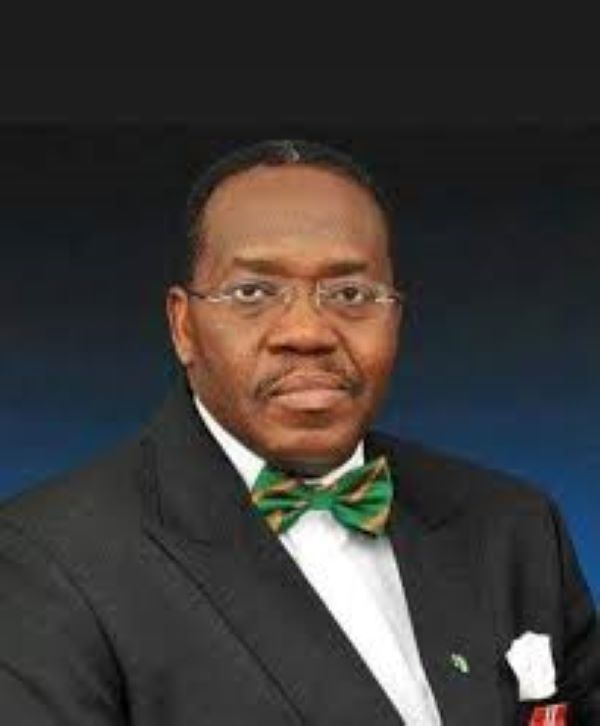
Most governments and international organisations, like the WHO have however, focused so far on how to contain the virus from spreading like a wildfire and leaving in its trail at present over 6 million infected and over 300,000 people dead. Bill Gates says in his April 23, 2020 article -The First Modern Pandemic, that “the coronavirus pandemic pits all of humanity against the virus. The damage to health, wealth, and well-being has been enormous. This is like a world war, except in this case, we’re all on the same side”
Surprisingly the high morbidity and resultant mortality rates are in the most developed countries in the world, especially where the best healthcare systems have existed for years. Yet, it was in these countries that ‘Transhumanist’ scientists, had for some time, boasted that very soon “death itself will become a curable disease” through series of gene therapies, bionic organ experiments, and miracle anti-ageing drug treatments. As a matter of fact, a team of Spanish doctors in mid-2019 made a rather troubling publication out of their research averring that they have discovered the “death of death”; in other words suggesting that science has made breakthroughs in possible immortality of man as diseases were no longer able to bring human lives to an end. Even before the day will break, Corona virus has come and glaringly shown our collective vulnerability.
HOW HAS THE WORLD REACTED?
This notwithstanding, COVID-19 more than any of the other plagues which have tormented the world, has brought out the importance of biological, medical and biomedical sciences. Country after country, medical experts’ researchers and field health workers have taken on the challenge to work in the most spirited manner to look for solutions in terms of vaccines and cures and also manage the cases of those were affected. The world has come to accept that the doctor’s sphyg and injections which they administer are today mightier than the paraphernalia of high political authorities.
The governments of the world therefore, resorted to shutting down the entire physical inter-connectivity between peoples and nations which had been achieved as a result of globalisation and breakthroughs in aviation technology in course of the 20th century. For instance, in 2019, on the average, about 2.7 million people go on board 44,000 flight across the world on international flights every day. At the domestic level, in the various countries, industry statistics for 2019, also show that much greater number of flights take place. For example, on daily basis, there are about 1.73 million passengers in 87,000 domestic flights within the US while in India its about 6,369 flights daily and for China about 6,533 flights. At a point, all these and slightly lower numbers in other countries all came to an abrupt stop or at best reduced to special and essential, non-commercial passenger flight. This also affected higher number of passengers on other forms of transportation and mass transit such as road, rail and maritime, such as Cruise Liners.
The impact is even more within national spaces as entire countries embarked on lockdown between provinces, regions, states or big cities. The lockdowns were in the direction of ensuring that the 7.2 billion people of the world remain in their homes as much as possible and only go out when it was and still is absolutely necessary. Some gradual, nervous relaxation of shut-downs have started around the world, but in majority of places, people are still shut out one against all others.
Entire financial systems of the world were virtually been brought to a halt with the only options left for basic activities through electronic means. Country upon country, restive steps, monetary policy measures, fiscal policy pronouncements and the rather insular public health policies had been adopted to protect citizens. In just the hospitality sector, one researcher had determined, in the first few weeks of lockdown, that “There were increased flight cancellations, cancelled hotel bookings and cancelled local and international events worth over $200billion. The flow of goods through Global supply chains vastly reduced significantly given that China was the world’s largest manufacturer and exporter, and the Chinese government ordered the closure of major factories” The effect on Nigeria, an oil producing and dependent economy has been debilitating; both from the corollary sharp drop in oil prices previously pegged cby budgetary officials at $57 per barrel to less than $15 at present. The country’s dollar-denominated debt is no longer able to hold back and have plummeted. With yields of some issues shooting above, a clear pointer to the peented up cost for assessing funds, possibly including the $3.4 billion being offered by the International Monetary Fund and not the least private funds and export credits.
So far COVID-19, is projected to cost the global economy as much. A recent May 1, 2020 detailed report by the United States Congressional Research Service suggests that the pandemic could cut global economic growth by as much as 2.5 percent and impact negatively on Global Trade as much as about 13 to 32 percent decline. Although, G-20 countries are galvanizing a bailout fund that could be much as about $5 trillion US dollar, the global economy with the attendant crash in stock markets, job layoff, peaked unemployment levels have taken all of humanity into a long and unprecedented recession.
The Educational system of the world as well as social activities such as religious obligations have been put away or at best, rendered through virtual ways. Governments are becoming forced to install platforms to enable children, especially in the urban areas study online and our youngster are almost becoming used to the mode of studies. Even wedding ceremonies have been recorded to be conducted virtually.
At the high political level, interactions between world leaders which used to be marked with colourful summit meetings, have lately been held through virtual electronic needs, as seen with the United Nations Security Council on April 27, 2020, Non Aligned Summit on May 5, 2020, Summit of Economic Community of West African States (ECOWAS) on April 22, 2020 amongst others . Coming closer home in Nigeria, the Governors of the thirty-six states under their platform, Nigerian Governor’s Forum met by video conferencing on April 20, 2020 for the 1st time in the country’s history. In the same vain, one of the most conservative institutions in Nigeria, the National Judicial Council held its 91st Statutory meeting online on April 22, 2020 in which it took the weighty decision of recommending a new President of the National Court of appeal.
Another major outcome of this entire covid-19 lockdown, is the importance of communication technology as one of the defining strengths of modern civilisation in the 21st century and beyond. As all human beings are locked indoors, we have now come to appreciate the fact that we can still communicate, because tele-communication has proved itself to be, “The last man
A PEEP BACK AT HISTORY
Although COVID-19 is the first major pandemic of its scale and spread in living memory for majority of the citizens of the world, it is important to note that the world had on a number of occasions, experienced other unforeseen outbreak of pestilence. Mainstream, Judaeo-Christian and Islamic religious accounts suggest a number of plagues and pandemics which occurred about 4,000 years during the time of the Egyptian civilization – The Plagues of Pharaoh. Also, recent studies by Swedish scientists at some of their ancient grave sites suggests that some forms of pandemics had occurred in Europe bout 3,000 years ago; thus deducing that this accounted for the deep steep in European population numbers. Without dwelling on further details, a listing of a few of the most recent will pandemics will suffice. From recorded history these include a long list:
- Antonine Plague or Plague of Galen of 106-180 AD during which 5 million people died. The viral disease, which appeared to have been a variant of either measles or even small pox is suspected to have come from China and spread in Europe and the rest of the world by soldiers who were returning from war campaigns. This was at a time, when the Roman Empire ruled the known world and military campaigns were rife;
- Small Pox is a highly contagious viral disease believed by historians, archaeologists and virologists to have existed in Ancient Egypt and India, spread by rodents in both regions from where it might have originated about 3000 years ago. However, the first recorded major recorded Smallpox Epidemic, touching the world occurred, 735-737 AD, taking 1 million lives,
iii. Plague of Justinian, which was bacterial in nature and believed to have originated from Africa and got into Europe through rats, occurring 541-542, and led to 30-50 million dead,
- The same bacterium substances resurfaced as Black Death happened in the years 1347-1351 AD, with 200 million human lives lost. This was the most fatal plague ever recorded in history!
- With European exploration around the world came the spread of to the “New World” of Small Pox in 1520, and took with it over 56 million lives lost or about 25 percent of the population,
- Next was the Italian Plague, of 1629-1631, which was bubonic, i.e. caused by bacterial coming from fleas, and believed to have come from the Orient, either China or Eurasia, with a toll of 1 million lives,
vii. Then came the Great Plague of London, 1665, also bubonic, coming from a bacterium and supposedly started in China but soon speed to Europe, claiming 100,000 souls,
viii. Afterwards was the bubonic Plague of Marseille of 1720-1722 in which 100,000 people died,
- The next major plague was Cholera Pandemics, 1817-1823, which is also bacterial based. This disease was initially endemic in Asia but spread quickly around the world, that led to death of over 1 million lives, at the time,
- The Third Plague, 1885, also bubonic bacterial and started in Yunnan, China in a matter of months spread fast to claim an estimated 12 million lives and also to neighbouring countries
- Yellow Fever, is viral in nature, but spread by a specie of mosquito. It had always existed locally in the tropics but a major epidemic around the world, occurred late 1800s, 100,00-150,000 people died, especially in the United States around Philadelphia,
xii. Russian Flu also known as the Asiatic Flu was a viral influenza, 1889-1890, in which about 1 million people died. This was the last of the great pandemics which visited humanity in the 19th century.
xiii. The 20th century therefore started on a sombre note as World War! which occurred from 1914-1919 claimed about 16 million direct deaths, only to be followed in its dyeing days by the Spanish Flu, 1918-1919, which took as much as about 40-50 million lives, easily spread as offshoot of the war,
xiv. Small Pox which had been recurrent in human history for thousands of years, especially in Europe, Asia and Arabia, with major endemic outbreaks in various regions However between 1870 and 1874, there was a major small Pox pandemic mostly in Europe followed by the new outbreak in 1949, when it moved around the world infecting at least about 50 million people every year and claiming about a third of these lives for some years.
- Asian Flu, started in China and between 1957-1958 spread globally killing 1.5 million. This was followed by the Hong Kong Flu, which was also an influenza virus which held the world hostage from 1968-1970, leaving in its trail 1 million lives, across nation,
xvi. HIV/AIDS, determined to be exogenous to African (primates) and was noticed first in1981, spread to the entire world and till date exists and has so far claimed 25-35 million lives,
xvii. Swine Flu, an influenza virus which first started in Veracruz, Mexico lasted 2009-2010, spreading globally and taking about 200,000 lives,
xviii. Also, of note is the Severe Acute Respiratory diseases (SARs,) caused by various viruses of the Corona family between 2002-2003, and so far, have taken at least 770 lives before it was brought speedily to control through a vaccine,
xix. Ebola, also known as haemorrhage virus was first discovered in 1976 and is believed to occur in non-human primate, from which is could have been spread to humans. Between 2014-2016, it killed 11,000 lives mostly in Sub-Saharan Africa, in Sierra Leone, Libera and Guinea and DRC; and
- Very similar to the present situation is another Corona virus-based pandemic known as Middle Eastern Respiratory Syndrome (MERS) which occurred around the Arabian Peninsula in 2012, claiming 800 lives before it was contained.
In addition to pandemics, there are many other daily killers. According to WHO, in 2017 alone, about 17.7 million people died from cardiovascular diseases worldwide, 10 million people died from cancer while lower respiratory infections killed 2.5 million lives, Diabetes, 1.3 million people. Also, road accidents killed 1.2 million people and finally while HIV took 954,000 lives. Furthermore, the “burden of other diseases”, meaning number suffering from them, includes 47 million for malaria, 16.9 million for cancer and 22.8 million people for cardiovascular diseases.
ABOUT OCCASIONAL FURY OF OUR NATURAL ENVIRONMENT
Although focus has been mostly on medical pandemics, several other natural causes have also continued, historically to compete for global emergency, preparedness and response. It is in this respect that the world has also occasionally received reports of unexpectedly, catastrophic disasters such as Tsunamis, Typhoons, Floods, Droughts, Volcanic eruptions.
For example, the China Flood or Yangtse Hua River Flood, which occurred in 1931 killed 4 million. This had actually been preceded by the Yellow River Flood also in China which killed 2 million people in 1887. Similarly, even the most devastating Earthquake which is recorded by man occurred, that is the Shensi China in 1556, taking a toll of 830,00 deaths, followed by the Tangshan Earthquake in 1976 leaving about 250,00 -655,000 people dead. In 2010, the world witnessed the Haiti earthquake which killed over 22,000 to 300,000 people. Also adverse weather events, such as the Bhola Cyclone which occurred in Bangladesh in 1970 left a large number of more than 500,000 people death Still of killer weather incidents, mankind was shocked with the occurrence of the Boxing Day, 2012, 9.1-magnitude undersea earthquake—one of the largest ever recorded— which occurred in the Indian Ocean, thrusting a gigantic pilaster of water on the coastal communities. This would be the deadliest in recorded history, taking a staggering 230,000 lives in the twinkle of an eye. The most devastating landslide incident so far in terms of human lives occurred in 1786 around the Dada River and Haiyun areas in China, with a causality figure of about 100,000 people. Also, are Bush Fires which are common place in Australia, Europe and the United states while series of heat waves in 2003, killed over 70, 000 people.
Famine which come often, suddenly and are mostly as a result of drought have also to continued take human lives. In the past, specifically in 1313-1317, this killed 7.5 million people in Europe alone, but by far the deadliest was the Great Chinese Famine which occurred in 1958-1961, claiming between 15 million to 43 million human lives. In other cases, as it was recently with East Africa, there have also been such phenomena as Locust invasion and its concomitance on food supply and human wellbeing have also been quite rampant, often when unexpected.
WHAT PANDEMICS AND NATURAL DISASTERS TEACH US
Global pandemics, global health emergencies and global natural disasters have always left humankind with very sharp scars and useful lessons for the future. Although all the plagues have had their peculiarities and specificities, in terms of scale, scope and content, there have been some general and broad patterns and give the basis for future action, especially
At the same time, the occurrences of the plagues and disasters have pushed mankind into greater scientific study to enable better predict and forecast possible occurrences. For example, mankind came to know, long in antiquity that the bark of the willow tree contains one of the oldest medicinal remedies in human history. More than 3,500 years ago, the ancient Sumerians and Egyptians used willow bark as a traditional medicine for pain relief; now known as aspirin. In the case of medical pandemic, from the time of Hippocrates, “the father of Medicine” continuous worth placed on research has greatly boosted the importance of the biomedical and molecular sciences. Indeed, medicine’s tremendous advances vis-a-vis infectious diseases have made susceptibility to various disease-causing organisms no longer a factor in human survival. In this respect, some of the top 10 medical, include Anesthesia (1846), Germ theory (1861), Medical imaging (1895), Penicillin (1928), Organ transplants (1954), Stem cell therapy (1970s), Immunotherapy (1970s), Artificial intelligence in this 21st century. With respect to pharmacology, the development of certain drugs and treatment have helped to save billions of human lives. These include, Smallpox vaccine, Morphine – (1827), Aspirin (1899), Polio vaccine, Chlorpromazine or Thorazine (1951), Chemotherapy drugs (1990s) for cancer management and various HIV Protease inhibitors mostly developed in the 1990s.
As it pertains to natural disasters, the invention and improvements in seismological technology and the modelling that come with it have also made earthquakes less complicated to predict and forecast. The study of the lives and behavioural pattern of animals, birds and fishes has also made it possible to predict earthquake. With respect to the weather, the development of metrological tools and space technology have made it easier to embark in observation and modelling, Some more familiar ones are thermometers which measure air temperature, anemometers which gauge wind speeds, and barometers which provide information on air pressure and data assimilation. In addition to these has been improved observations, particularly through satellite remote sensoring of the atmosphere and the earth’s surface.
However, with each major occurrence of global health pandemic or natural disasters, mankind had always awakened to the fact that our understanding of the word is still at very infantile stages. Even worse is the sad realization that our disaster preparedness mechanism is weak, feeble and totally inadequate. Hence, even the most developed countries have paid dearly. This calls for the need for more sustained global efforts in funding research and developments of models, and actual intervention mechanisms. This require overhauling of school curriculum, to focus on biomedical sciences, earth sciences, space sciences and greater use of artificial intelligence.
There is also a need to focus on humanistic issues, human welfare, social welfare and family-based aspects of life. Such as building of hospitals, human shelters, agricultural and food storage and supply chains and psycho-social remedial therapies. In order words, the global political and economic super structures have to think more of the centrality of the human race and forecast on long terms basis on how to survive, in case of the unexpected.
The other major lesson from such unplanned disasters is the interdependency of the world, especially at the regional level. Each country in the world had always found itself on its knees. In all the plagues that have been mentioned, even the most powerful countries, found themselves looking for help and succours. It is for example unimaginable that even the most powerful, and technologically advanced countrifies were looking for where to purchases such basic things as Personal Protection Equipment (PPEs) and ventilators, during COVID 19. Relatedly to this is the actual search for cures; such as the Senegalese Serum the Madagascar potion or some other African immune boosting cocktails in the cyber market.
Despite the truth of the global interdependency, plagues, pandemics, disaster, impel counties and peoples to discover their inner strengths and unleash constructive reasoning. At a time of stark global shortages, most countries have tended to look inwards for solutions. From basic things as production of Face Masks and PPEs, to even the production of pharmacological solutions and biomedical products such as ventilators.
WHAT THE WORLD MAY BECOME POST COVID-19
From historical accounts, such great global events always come with fundamental changes in the world. The world as we have it today, is the product of the outcome of major global disasters, natural and anthropogenic (manmade, often wars). We must, at the most primary level, accept the basic living protocol now passed over to us, including wearing of face masks, maintenance of social distancing and personal hygiene. Interesting enough these are also the anecdotes for more regular diseases around us.
With COVID 19 in particular, its impact is multifarious, both trans-national, national and individual. World leaders would have to, necessarily, divert a substantial part of their conversation around social and scientific issues. The world in which man finds himself is very complex. Mankind as an intelligent being only understands a basic scratching of the complex world around us and even our mother planet, Earth itself. Our understanding of the surface of the earth, the numinous mountains and caves, deep underwater and the atmosphere is rather perfunctory. On the contrary, global attention is more on politics power, armament and at best leisure. World leaders have to wake up from the slumber and realize that the sustenance of humanity and the security of our future generations is investment in science and disaster preparedness, simpliciter!
COVID-19 will leave a lot of families around the world on the fringes as the entire global economic superstructure has capitulated. Recovery will be slow and uninspiring. Lesson learnt is the need for the world system to have in place safety back-up systems. In the present circumstances, global concert must harp on saving more human lives that may be occasioned by hunger and the opportunistic disease infections. This requires more commitment to agriculture and preservation of food and human nutritional needs in the safest manner. It also requires robust economic stimulus and social inclusion measures. These must be dealt with urgency of action and committed.
In the same manner in which the creative acumen of man birthed the United Nations and all its complex structures and institutions, including the new global economic dictat in post World War Two (although a man-made calamity that wasted 75-80million lives), sincere conversation must generate around these topics; that is improving prediction and managing unexpected disasters and redirecting existing structures or create new ones.
At the social level, we must now come back to the old truth, that after everything the filial and family bounds are the critical ones, we can firmly fall back on. Mankind must restore the family bond, both for better living and for succour in times of disaster Related to this is the God favour in all these. As COVID-19 rode roughshod, taking uncountable lives, many turned back to God for help and protection. This is apposite as only the Almighty, who made all things in the first place and keeps the planetary system of nearly 200 billion galaxies and trillions of stars going on has the answer. This should help stir up a new spiritual revivalism; irrespective of faith or creed
Igali is a former Ambassador and Writer
